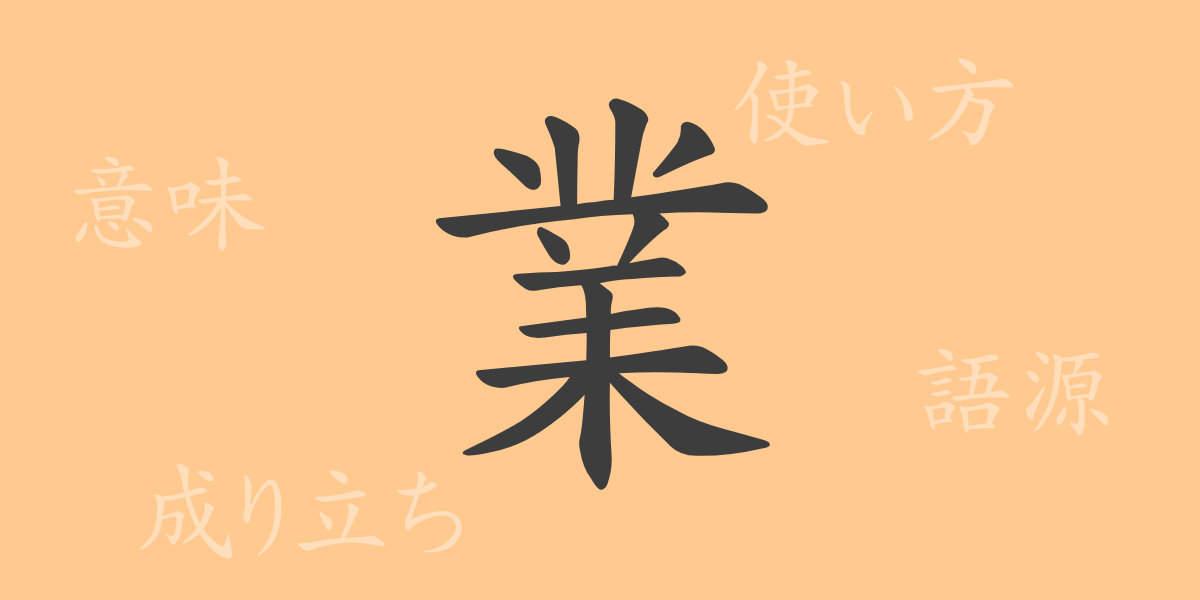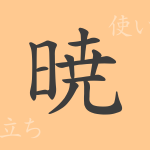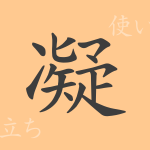Among the many kanji in the Japanese language, “業(ぎょう)” holds a particularly important place. From business to everyday conversation, and even in personal life, this kanji is deeply rooted in our daily lives. Let’s explore the origin, meaning, usage, and related expressions of the kanji “業(ぎょう)”.
Origin of 業(ぎょう)
The kanji “業(ぎょう)” is derived from ancient Chinese pictographs, originally meaning “to use hands to form a shape.” This kanji combines “彐(けいがまえ),” which represents a hand, and “丁(ひのと),” which signifies assistance, indicating labor or work.
Meaning and Usage of 業(ぎょう)
In modern Japanese, the kanji “業(ぎょう)” is widely used to refer to work or profession. It also denotes specialized activities in specific fields or sectors, and in Buddhist terms, it refers to “karmic cause” and “karmic effect.” Thus, “業(ぎょう)” is a kanji used in various contexts in daily life.
Readings, Stroke Count, and Radical of 業(ぎょう)
The kanji “業(ぎょう)” has various readings and significant information reflecting its form and meaning.
- Readings: The on’yomi (Chinese reading) is “ギョウ(ぎょう),” and the kun’yomi (Japanese reading) is “わざ.”
- Stroke count: “業(ぎょう)” has a total of 13 strokes.
- Radical: The radical for this kanji is “木(き),” but “業(ぎょう)” itself can also function as a radical.
Idioms, Expressions, and Proverbs Using 業(ぎょう)
The kanji “業(ぎょう)” appears in many idioms, expressions, and proverbs. Here are some examples:
- 業務(ぎょうむ): Refers to work or business tasks.
- 業績(ぎょうせき): Refers to work achievements or results.
- 営業(えいぎょう): Refers to conducting business.
- 業界(ぎょうかい): Refers to a specific field or industry.
- 業を煮やす(ごうをにやす): Means reaching the limit of patience.
- 前世の業(ぜんせのごう): Means suffering in the present due to past actions.
Conclusion on 業(ぎょう)
Through this exploration, we’ve seen the rich history and meaning of the kanji “業(ぎょう),” as well as its diverse usage in the Japanese language. From business to daily life, and even in spiritual aspects, this single kanji deeply influences our world. Understanding the background of each kanji like this is an essential step in gaining a deeper understanding of the Japanese language.

























